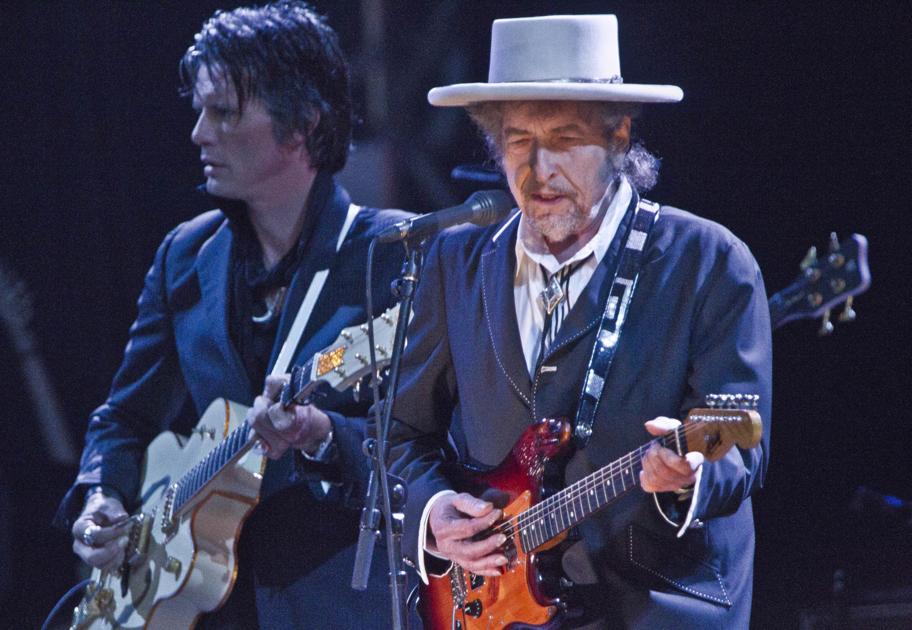Guest Comment: Dylanologists Still Debating the Faith of an 80-Year-Old Icon | Guest columns
[ad_1]
Night after night, Bob Dylan’s 1979 gospel concerts at the Warfield Theater in San Francisco made the news for all the wrong reasons, according to angry fans.
The Nov. 11 show opened that year with Dylan roaring on “Gotta Serve Somebody†from “Slow Train Coming,†the first of what Dylanologists called his “born-again†albums.
“You can be a high profile businessman or thief,†he sang. “They can call you doctor or chief, but you’re going to have to serve someone… well, it might be the devil, or it might be the lord, but you’re going to have to serve someone.”
To add insult to injury, these concerts included fiery sermons from Dylan, as he eschewed the classic songs that made him a legend.
“I was 19 and this was my first gig with Dylan,†recalls Francis Beckwith, who teaches Church and State Studies at Baylor University. “The atmosphere was very charged. Some people booed or went out. There were people shouting, “Praise the Lord! but you could also smell people smoking weed. “
Beckwith continued to attend Dylan’s concerts, following reports over the years as to whether the songwriter was still a Christian, returned to Judaism, or fused these beliefs. These debates continue even as fans, critics, academics and musicians celebrated Dylan’s 80th birthday on May 24.
With a doctorate in philosophy from Fordham University in New York and a law degree from Washington University in St. Louis, Beckwith is certainly no conventional music critic. He made headlines in 2007 when, while president of the Evangelical Theological Society, he announced his return to Catholicism.
To mark Dylan’s milestone birthday, Beckwith posted comments online on what he considers his 80 most important songs. The Top 10:
• “Like a rolling stone”
• “My back pages”
• “Stuck inside the mobile with the Memphis Blues again”
• “Mr. Tambourine Man”
• “Visions of Johanna”
• “Entangled in the blue”
• “Blowing in the wind”
• “Precious angel”
• Everything is fine, mom (I’m just bleeding) “
• “Rank of desolationâ€.
Beckwith considered three factors: popularity, enduring cultural significance and, finally, whether each song was “something I could listen to over and over againâ€. He pointed out that all of Dylan’s canon includes images and themes rooted in scripture and faith.
“When you listen to Dylan, you can hear that he has read classical literature his entire life. References to Dante and St. Augustine are as likely to pop up as comments on politics,†Beckwith said.
“You also see signs of his Jewish faith and heritage, of course. But he was citing the New Testament before his conversion to Christianity. Dylan also absorbed generations of American music – especially folk, gospel, and blues. . “
It is important to see the tension, throughout Dylan’s life, between “finger-pointing protest songs” and poetic work on culture, faith and his personal life. The “born-again” albums, Beckwith noted, included many songs that commented on current affairs, as did the classics from the ’60s that made Dylan a superstar.
Critics who said that Dylan “became secular” after 1981 paid no attention.
“Take ‘Infidels’,†Beckwith said, referring to a 1983 album. “It’s filled with scripture, even though critics have said it shows he’s gone beyond his reborn faith. an evangelical preaching, and instead it was full of medieval Christian images and literary references. It went over their heads. “
The title track of Dylan’s “Tempest” in 2012 is about the Titanic. But there’s that twist in the lyrics, “The captain, barely breathing, kneeling at the wheel.” Above him and below him fifty thousand tons of steel … the Apocalypse and he filled his cup with tears. “
Dylan concludes that “there is no understanding … judgment from the hand of God”.
Yes, this song is about the sinking of the Titanic. But it’s clear that Dylan has created a religious narrative about “the arrogance of man” and the “breach of our world,” Beckwith said.
“Dylan is deeply skeptical of human motivations and actions, including his own,” he said. “He keeps coming back to ancient truths, traditions and books that many ignore.
“He’s not saying we have to destroy things, as many heroes of the counterculture claim,†Beckwith said. “Dylan says we haven’t lived up to these old truths and traditions. He wants to learn from the past.”
[ad_2]

